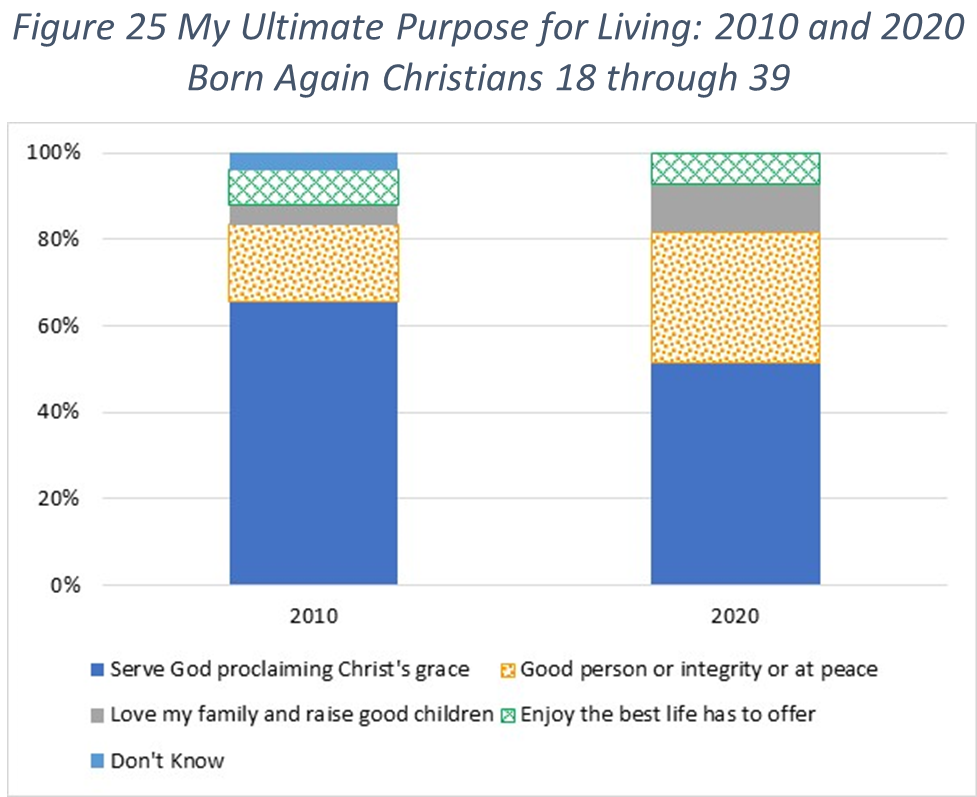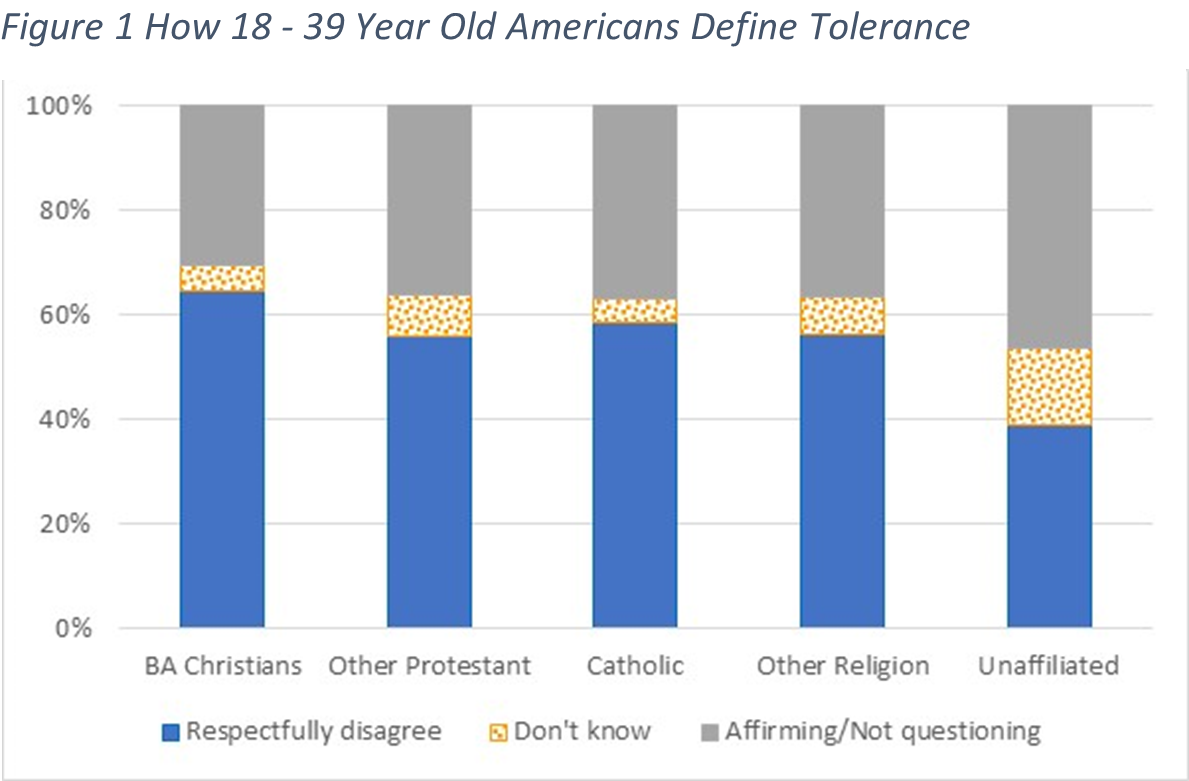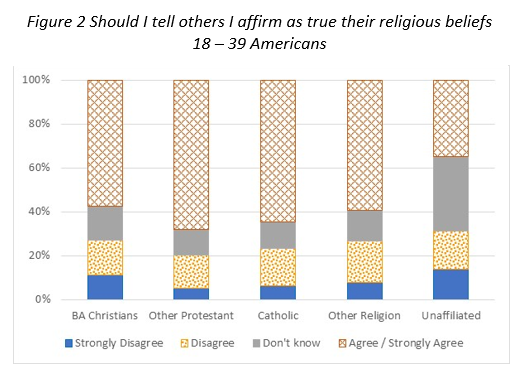The COVID pandemic caused a worldwide financial crisis, making stewarding God’s money more important than ever. Kerby Anderson provides a biblical view of money, giving, debt, and savings.
A number of years ago, I wrote a book with the appropriate title, Making the Most of Your Money in Tough Times.{1} Although there have been tough times in the past, we certainly need some biblical wisdom about our money and how to manage it in our current circumstances. Here are some key principles that I discuss in that book and in a more recent book on the subject of Christians and Economics.{2}
Biblical View on Money

Let’s start by correcting a common cliché that money is the root of all evil. Actually, the biblical passage says: “The love of money is a root of all kinds of evil, for which some have strayed from the faith in their greediness” (1 Timothy 6:10).
Money is not evil, but the love of money can be a concern. Money can be used to promote good or evil. Money can provide for your family, feed the poor, and promote the gospel. It can also be used to buy drugs, engage in prostitution, and destroy individuals and society.
The real question is: What is your attitude towards money? What do you plan to do with the financial resources God has placed into your hands? Jesus warned us that we should not love money because we cannot serve God and Mammon (Matthew 6:24). In order to have a proper biblical perspective on money, we need to understand what the Bible teaches about wealth and poverty.
While we are talking about money, let’s focus some attention on wealth. Within the Christian community, we are often bombarded with unbiblical views of wealth. At one extreme are those who preach a prosperity gospel of “health and wealth” for all believers. At the other extreme are radical Christians who condemn all wealth and imply that a rich Christian is a contradiction in terms.
What is a biblical view of wealth? First, wealth itself is not condemned. The Bible teaches that God gave material wealth to Abraham (Genesis 13), Isaac (Genesis 26), Jacob (Genesis 30), and Joseph (Genesis 39). Other characters in the Old Testament were also wealthy, such as Job (Job 42) and Solomon (1 Kings 3). In fact, we see in Job 42 that God once again blessed Job with material possessions after his trials. In Deuteronomy, Proverbs, and Ecclesiastes, wealth is seen as evidence of God’s blessing (Deuteronomy 8; 28; Proverbs 22:2; Ecclesiastes. 5:19).
Even though wealth might be an evidence of God’s blessing, believers are not to trust in it. Passages in the Old Testament and the New Testament teach that the believer should not trust in wealth but in God (Proverbs 11:4; 11:28; Jeremiah 9:23; 1 Timothy 6:17; James 1:11; 5:2).
Second, when wealthy people in the Bible were condemned, they were condemned for the means by which their riches were obtained, not for the riches themselves. The Old Testament prophet Amos railed against the injustice of obtaining wealth through oppression or fraud (4:11; 5:11). Micah spoke out against the unjust scales and light weights with which Israel defrauded the poor (6:1). Neither Amos nor Micah condemned wealth per se; they only denounced the unjust means by which it is sometimes achieved.
Third, Christians should be concerned about the effect wealth can have on our lives. We read in many passages that wealth often tempts us to forget about God. Proverbs 30:8-9 says: “Give me neither poverty nor riches; Feed me with the food that is my portion, That I not be full and deny You and say, ‘Who is the Lord?’” Hosea 13:6 says of those who were satisfied that “their heart became proud” and ultimately forget about the Lord.
Biblical View on Giving
In order to develop a biblical point of view on money, we should first focus on the subject of giving. The concept of the tithe in introduced in the Old Testament. The word tithe means “a tenth part.” Once you understand that someone who, say, makes $3000 a month and gives only $100 a month is not tithing. A number of studies have found that only 2-3 percent of households tithe their income to their church.
There is no explicit command in the New Testament to tithe. The primary reason is that the tithe was for the Levites and the priests. The substitutionary death of Christ for our sins did away with the need for a temple and priests.
In the New Testament, we do see numerous verses calling for believers to give. For example, we are to give to those who minister (1 Corinthians 16:1; Galatians 2:10). We are to give to those who trust God to supply their needs (Philippians 4:19). We are to give as God has prospered them (1 Corinthians 16:2) and are to give cheerfully (2 Corinthians 9:7). And the Bible teaches that we will ultimately give account of our stewardship (Romans 14:12).
The first century believers set a high standard for giving. They sold their goods and gave money to any believer in need (Acts 2:45). They sold their property and gave the entire amount to the work of the apostles (Acts 4:36-5:2). And they also gave generously to the ministry of Paul (2 Corinthians 8:1-5) on a continual basis (Philippians 4:16-18).
Even though the tithe was no longer required, it appears that the early believers used the tithe as a base line for their giving. After all, a large majority of the first century believers were Jewish, and so they gave not only the tithe but above and beyond the requisite ten percent.
Paul makes it clear that Christians are not to give “grudgingly or under compulsion” but as each believer has “purposed in his heart” (2 Corinthians 9:7). Although the tithe was no longer the mandatory requirement, it seems to have provided a basis for voluntary giving by believers.
There is also a correlation between sowing and reaping. 2 Corinthians 9:6 says: “Now this I say, he who sows sparingly will also reap sparingly, and he who sows bountifully will also reap bountifully.” Elsewhere in Scripture, we read that the size of a harvest corresponds to what we scatter. Proverbs 11:24-25 says: “There is one who scatters, and yet increases all the more, And there is one who withholds what is justly due, and yet it results only in want. The generous man will be prosperous, And he who waters will himself be watered.” Notice that a spiritual harvest may be different from the kind of seed that is sown. For example, a material seed (giving to ministry) may reap a spiritual harvest (1 Corinthians 9:9).
Finally, we are to give according to what we have purposed in our hearts. 2 Corinthians 9:7 says: “Each one must do just as he has purposed in his heart, not grudgingly or under compulsion, for God loves a cheerful giver.”
Biblical View on Debt – Part 1
The Bible has a number of warnings concerning debt. Proverbs 22:7 says: “The rich rule over the poor, and the borrower is a servant to the lender.” When you borrow money and put yourself in debt, you put yourself in a situation where the lender has significant influence over you.
Many other verses in the Proverbs also warn about the potential danger of taking on debt, especially another person’s debt (Proverbs 17:18; 22:26-27; 27:13). While this does not mean that we can never be in debt, it does warn us about its dangers.
If you are debt free you are free to follow the Lord’s leading in your life. If you are in debt, you are constrained and become a servant to the lender. People who are in financial bondage are not emotionally or spiritually free. Their financial obligations wear heavy upon their mind and spirit.
The Bible also teaches that it is wrong to borrow and not repay. Psalm 37:21 says: “The wicked borrows and does not pay back, but the righteous is gracious and gives.”
Some have taught that Christians should never go into debt. The basis for that teaching is usually the passage in Romans 13:8 because it says: “Owe nothing to anyone.”
Although some have argued that this verse prohibits debt, the passage needs to be seen in context. This passage is not a specific teaching about debt but rather a summary of our duty as Christians to governmental authority. Paul is teaching that we should not owe anything to anyone (honor, taxes, etc.). But he is not teaching that we should never incur debt. While it is better that we are debt-free, this passage is not commanding us to never go into debt.
The Bible is filled with biblical passages that provide guidelines to lending and borrowing. If debt was always wrong, then these passages would not exist. After all, why have passages providing guidelines for debt if debt is not permitted? Certainly there would be a clear prohibition against debt. We should point out that the clear implication of Romans 13:8 is that we should pay our debts and it would be wise if we would pay our debts off a quickly as possible.
Biblical View on Debt – Part 2
One of the consequences of debt is that we can often deny reality. In order to realistically deal with the debt in our lives we need to get rid of some of the silly ideas running around in our heads.
For example, you are NOT going to win the lottery. Your debt problem is NOT going to go away if you just ignore it. And a computer glitch in your lender’s computer is NOT going to accidentally wipe out your financial records so that you don’t have to repay your debt.
Another consequence of debt is a loss of integrity. When we cannot pay, we start saying “the check’s in the mail” when it isn’t. We not only kid ourselves but we try to mislead others about the extent of our problem with debt.
Sometimes debt even leads to dishonesty. Psalm 37:21 says: “The wicked borrows and does not pay back.” We should repay our debts.
A third consequence of debt is addiction. Debt is addictive. Once in debt we begin to get comfortable with cars, consumer goods, furniture, etc. all funded through debt. Once we reach that comfort level, we go into further debt.
A final consequence of debt is stress. Stress experts have calculated the impact of various stress factors on our lives. Some of the greatest are death of a spouse and divorce. But it is amazing how many other stress factors are financially related (change in financial state, mortgage over $100,000). When we owe more than we can pay, we worry and feel a heavy load of stress that wouldn’t exist if we lived debt free.
Biblical View on Savings
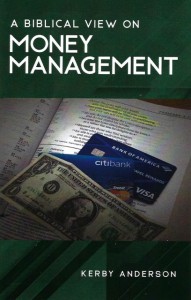 It is always important for us to get out of debt. I have written another booklet on the subject of debt. If you are in debt or want to learn more about government debt and personal debt, I encourage you to obtain that booklet. Email me your name and address at [email protected] and I will send it to you.
It is always important for us to get out of debt. I have written another booklet on the subject of debt. If you are in debt or want to learn more about government debt and personal debt, I encourage you to obtain that booklet. Email me your name and address at [email protected] and I will send it to you.
We should not merely work to get out of debt and eventually break even. Savings and investing should be part of your budget and part of your life plan. Saving and investing are ultimately a means to an end. You may be saving for your kids’ college or saving for your retirement.
America used to be a nation of savers. In fact, thrift was a foundational element of American society. The architect Louis Sullivan even carved the word THRIFT over the door of his bank. Thrift was seen as a private moral virtue that made public prosperity possible. Americans supported institutions that encouraged savings.
The Bible encourages us to save. In Proverbs it encourages those who do not save to consider how a lowly creature like the ant prepares for the future. “Go to the ant, you sluggard; consider its ways and be wise! It has no commander, no overseer or ruler, yet it stores its provisions in summer and gathers its food at harvest” (Proverbs 6:6-8).
The writer of Proverbs also talks about how wise people save in contrast to foolish people who do not. “In the house of the wise are stores of choice food and oil, but a foolish man devours all he has” (Proverbs 21:20).
We should always have a budget. Author and speaker, John Maxwell, has a great definition of a budget: “A budget is people telling their money what to do instead of wondering where it went.” A budget is a plan for saving and spending.
The book of Proverbs admonishes us to plan. Proverbs 16:3 says, “Commit your works to the LORD And your plans will be established.” But as we develop these plans for the future, we also need to be sensitive to the Lord’s leading. “The mind of man plans his way, but the Lord directs his steps” (Proverbs 16:9).
The Bible promises that good things will happen when we plan. “Good planning and hard work lead to prosperity” (Proverbs 21:5, NLT). By contrast, the Bible also teaches that your plans will fail if these plans are not within the will of God. Isaiah 30:1 says, “’Destruction is certain for my rebellious children,’ says the Lord. ‘You make plans that are contrary to my will. You weave a web of plans that are not from my Spirit, thus piling up your sins.’”
If you do not have anything in savings, you need to begin by putting aside a cash reserve for emergencies. Proverbs 22:5 says, “The prudent sees danger and hides himself, but the simple go on and suffer for it.” Everyone needs a cash reserve for major emergencies (fire, tornado, earthquake) and even for small emergencies and inconveniences (broken appliance, car repair, flat tire).
Most financial advisors suggest that you have six months’ worth of income set aside for an emergency or unexpected expense. You may not have that set aside right now, but today is a good time to start setting aside some money. Make your first goal to set aside one month’s worth of income.
This has been a brief overview of money management. I encourage you to read books{3} and visit websites that will give you even more direction on how to use your money. The Bible provides insight in giving, savings, and debt. Apply these principles and allow God to bless you.
Notes
1. Kerby Anderson, Making the Most of Your Money in Tough Times *Eugene, OR: Harvest House), 2009.
2. Kerby Anderson, Christians and Economics (Cambridge, OH: Christian Publishing House), 2016).
3. Randy Alcorn, Money, Possession and Eternity (Wheaton, IL: Tyndale House), 2003.
Kerby Anderson, Christians and Economics (Cambridge, OH: Christian Publishing House), 2016.
Kerby Anderson, Making the Most of Your Money in Tough Times. (Eugene, OR: Harvest House), 2009.
Larry Burkett, How to Manage Your Money: An In-Depth Bible Study on Personal Finances (Chicago, IL: Moody), 2002.
Jay Richards, Money, Greed, and God (NY: Harper One), 2009.
©2020 Probe Ministries
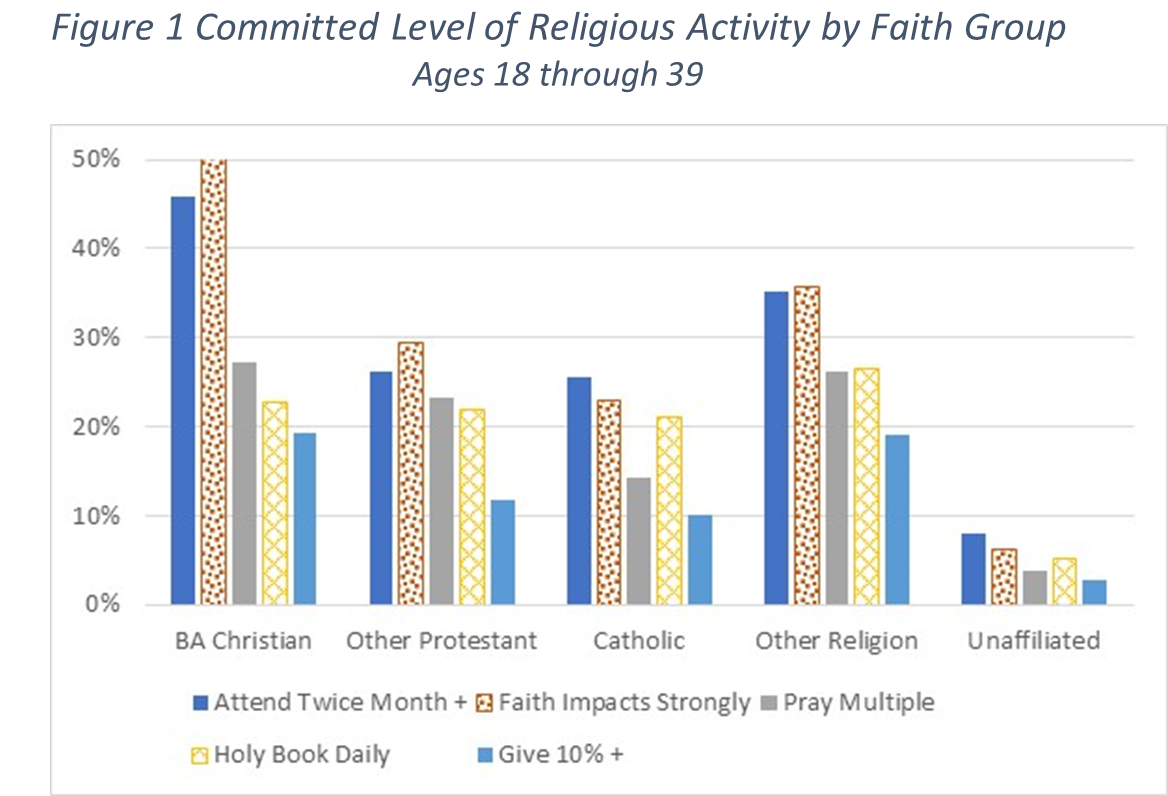
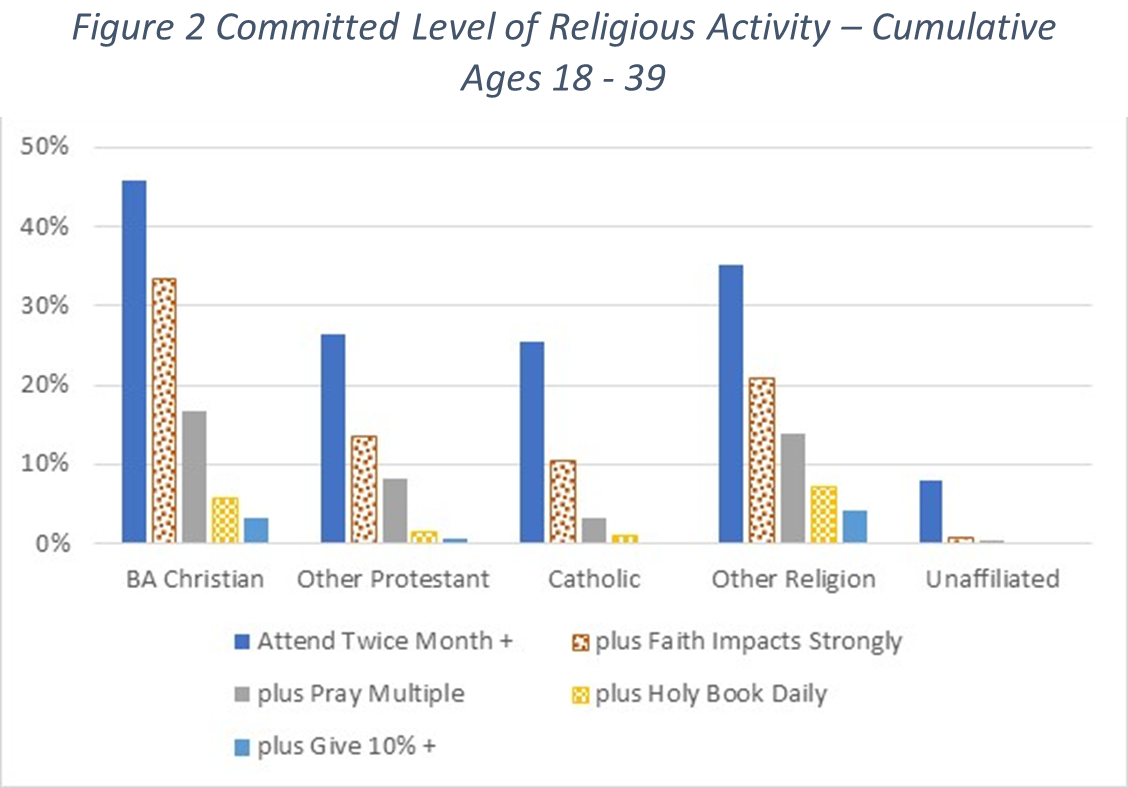
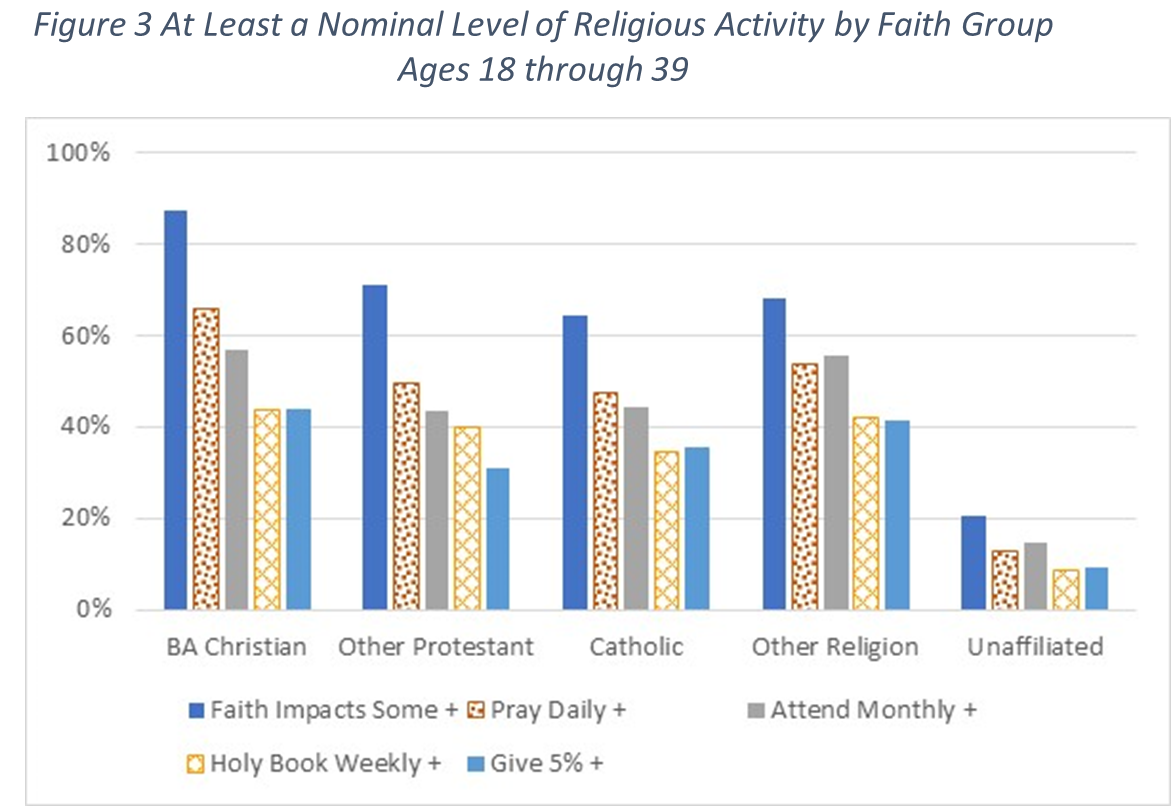 Nominal or Committed Levels of Religious Activity
Nominal or Committed Levels of Religious Activity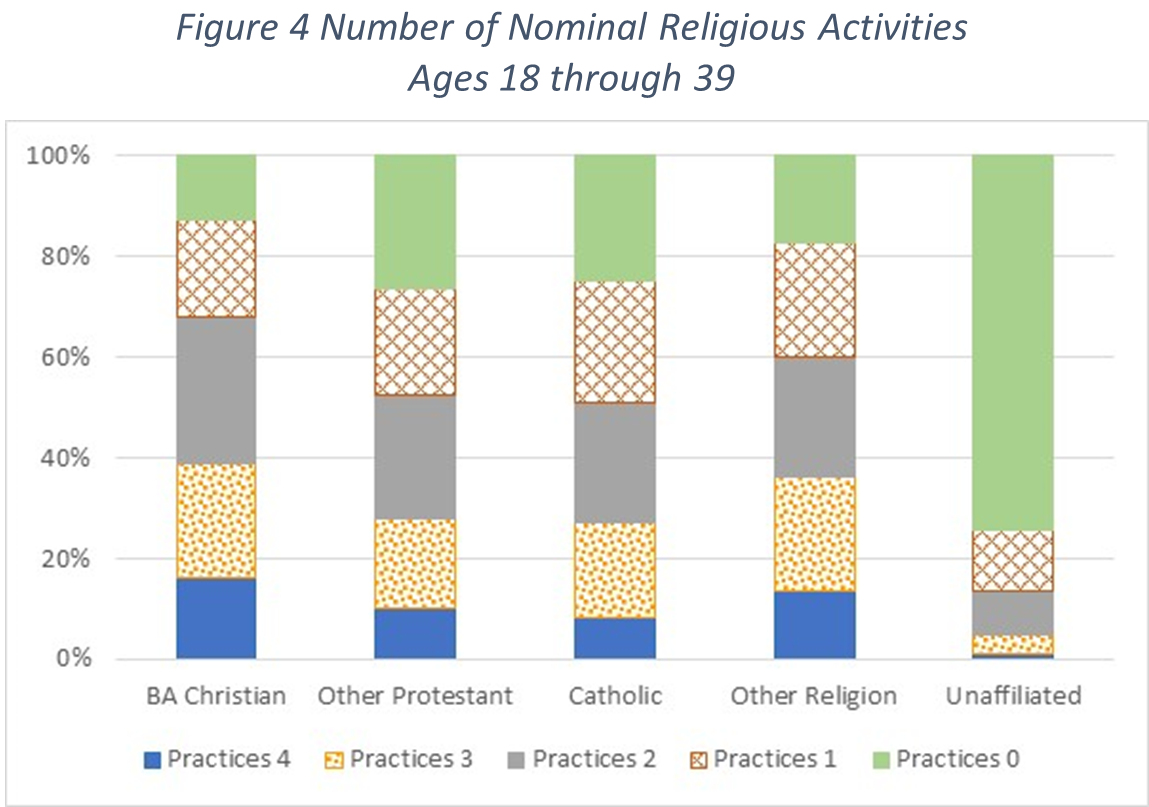
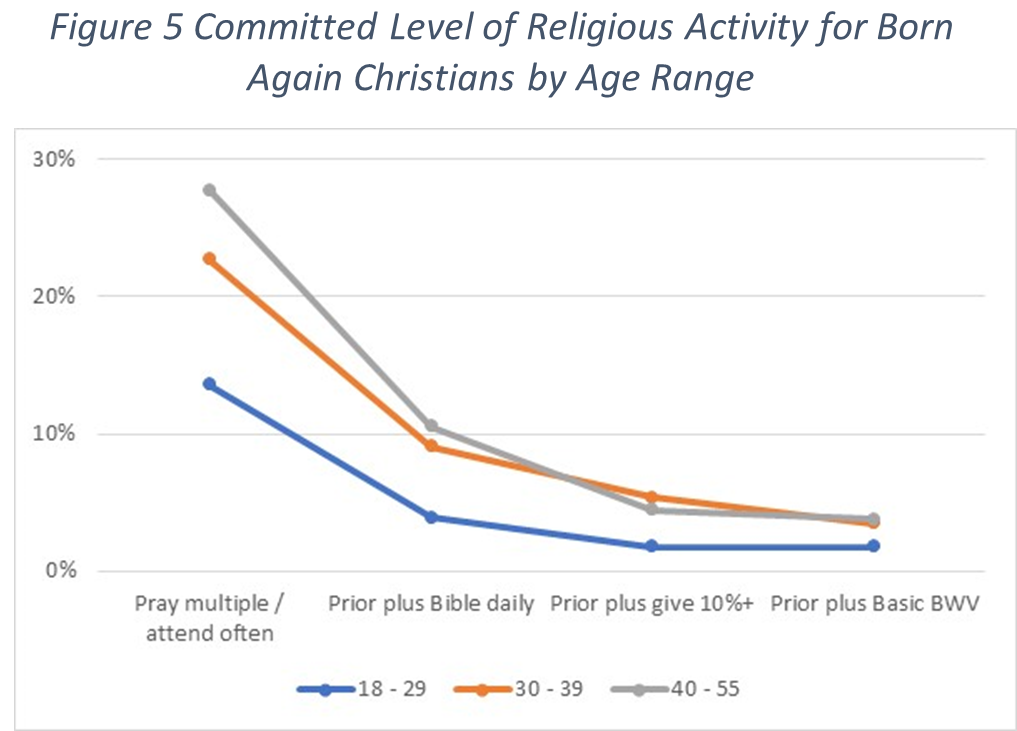
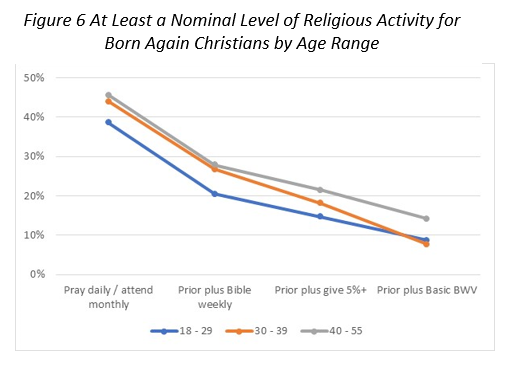
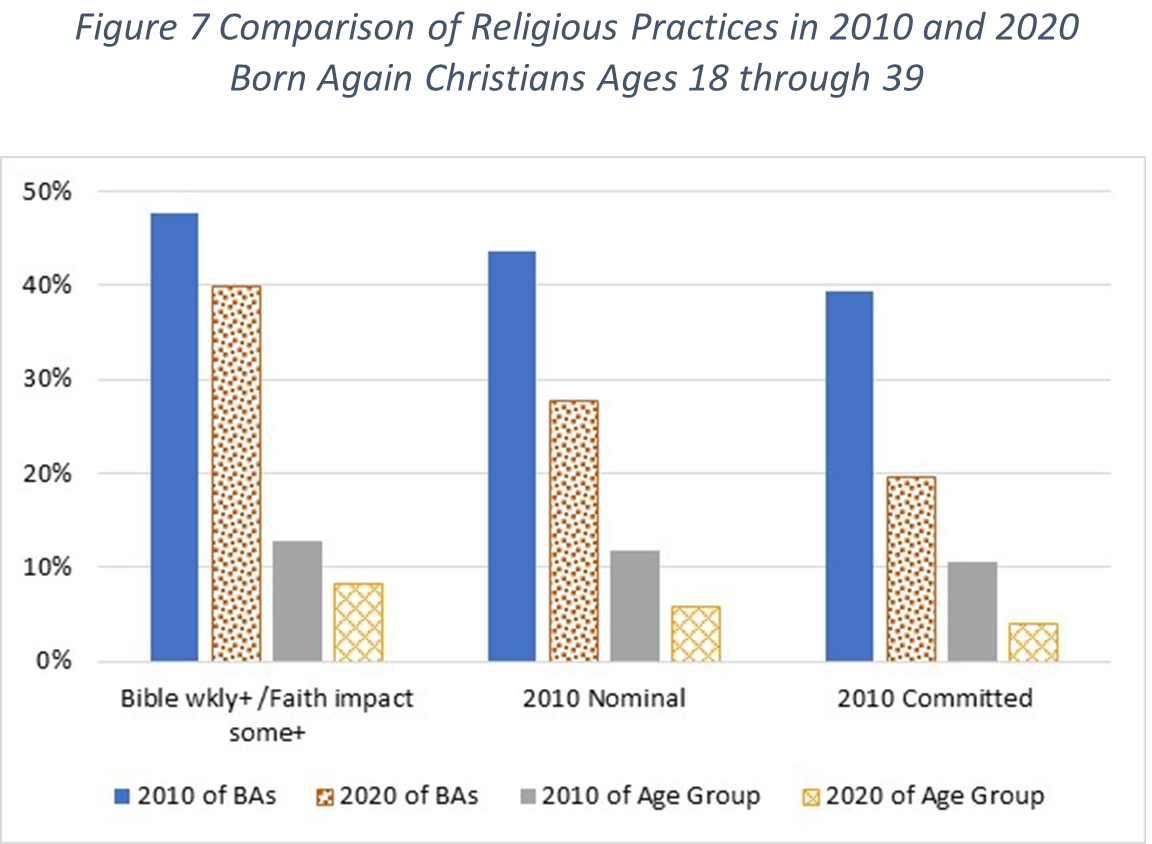
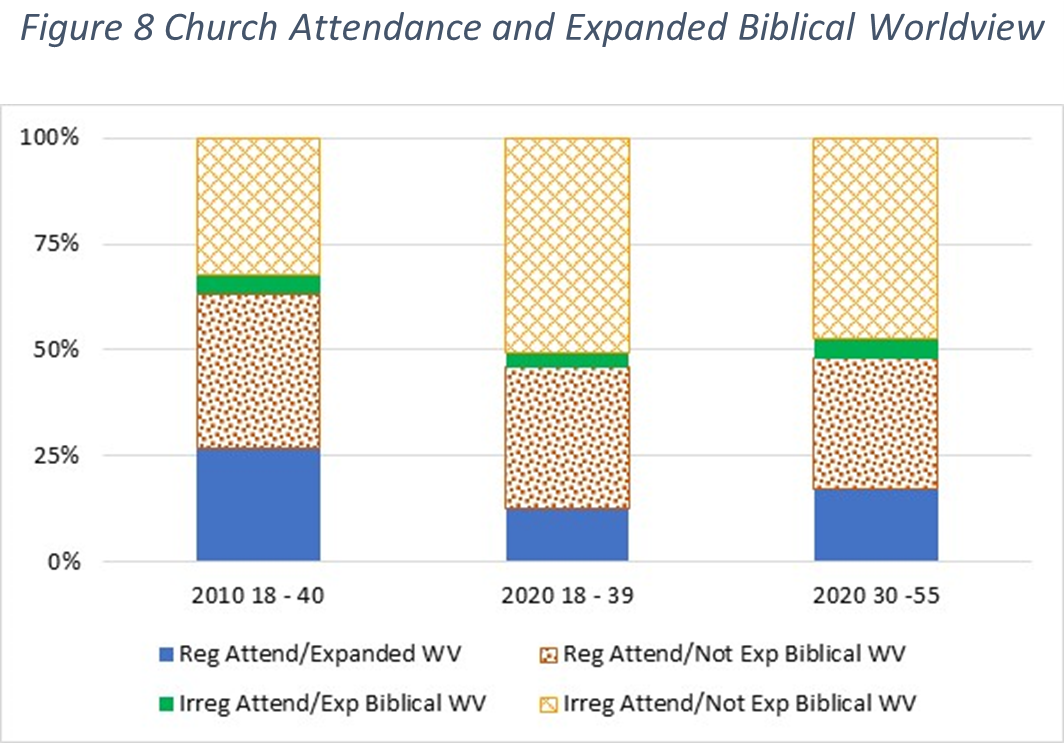 The figure on the left compares the findings from 2010 with those from 2020 using the more stringent Expanded Biblical Worldview. The values shown are the percent of Born-Again Christians (so all columns add up to 100% even though the percentage of Born Again Christians is less in 2020). Two age ranges are used in 2020; the first one is basically the same age range used in 2010 (18 – 39) and the second age range (30 – 55) is very close to the age range of the 2010 survey aged by the ten years that have gone by.
The figure on the left compares the findings from 2010 with those from 2020 using the more stringent Expanded Biblical Worldview. The values shown are the percent of Born-Again Christians (so all columns add up to 100% even though the percentage of Born Again Christians is less in 2020). Two age ranges are used in 2020; the first one is basically the same age range used in 2010 (18 – 39) and the second age range (30 – 55) is very close to the age range of the 2010 survey aged by the ten years that have gone by.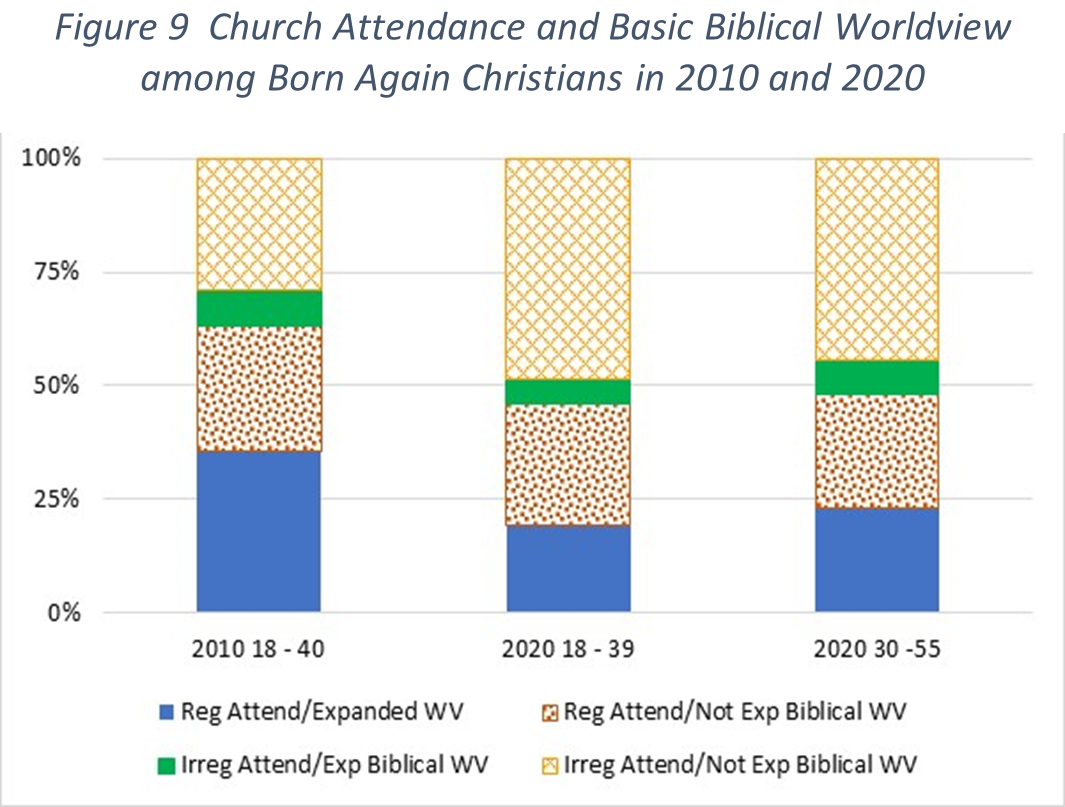 Now let’s examine the same chart using a Basic Biblical Worldview. We see nearly the same features as discussed above. A significant drop is shown in those with regular attendance and a Basic Biblical Worldview coupled with a significant increase in those with irregular attendance and no Basic Biblical Worldview.
Now let’s examine the same chart using a Basic Biblical Worldview. We see nearly the same features as discussed above. A significant drop is shown in those with regular attendance and a Basic Biblical Worldview coupled with a significant increase in those with irregular attendance and no Basic Biblical Worldview.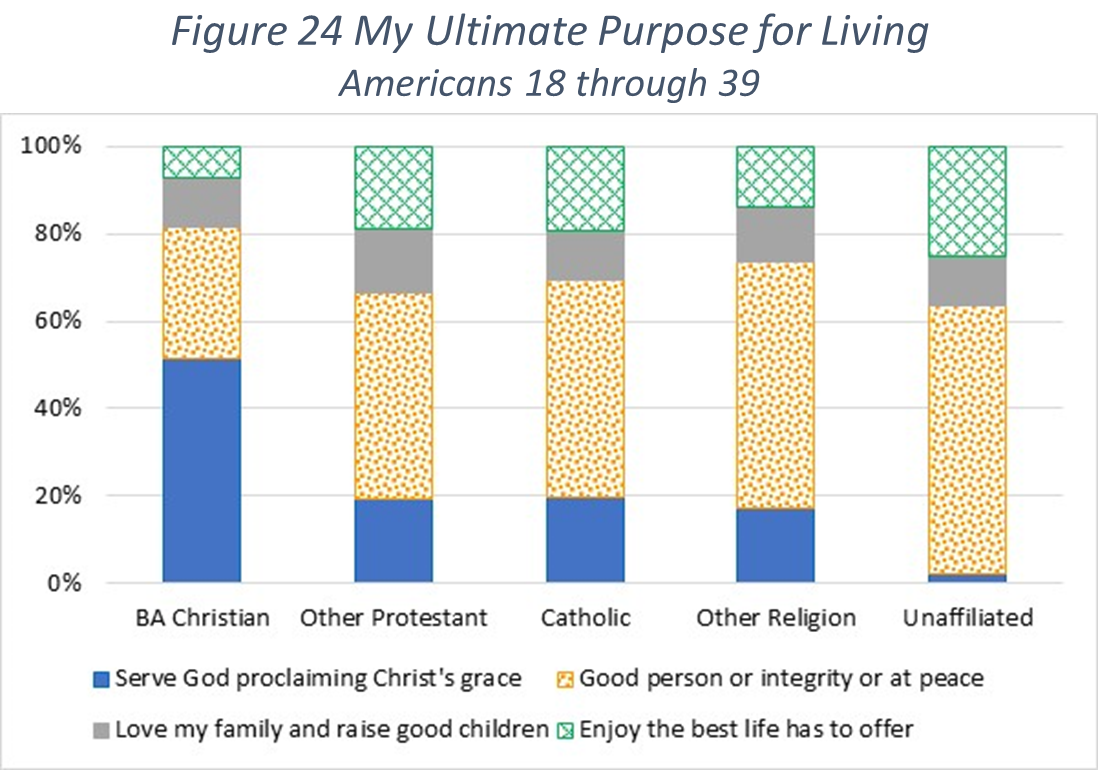 The results are charted in the graph to the left. As shown, just over half of Born Again Christians profess an eternal perspective. This means almost half do not, with most of those selecting a purpose that focuses on good behaviors in their personal life.
The results are charted in the graph to the left. As shown, just over half of Born Again Christians profess an eternal perspective. This means almost half do not, with most of those selecting a purpose that focuses on good behaviors in their personal life.